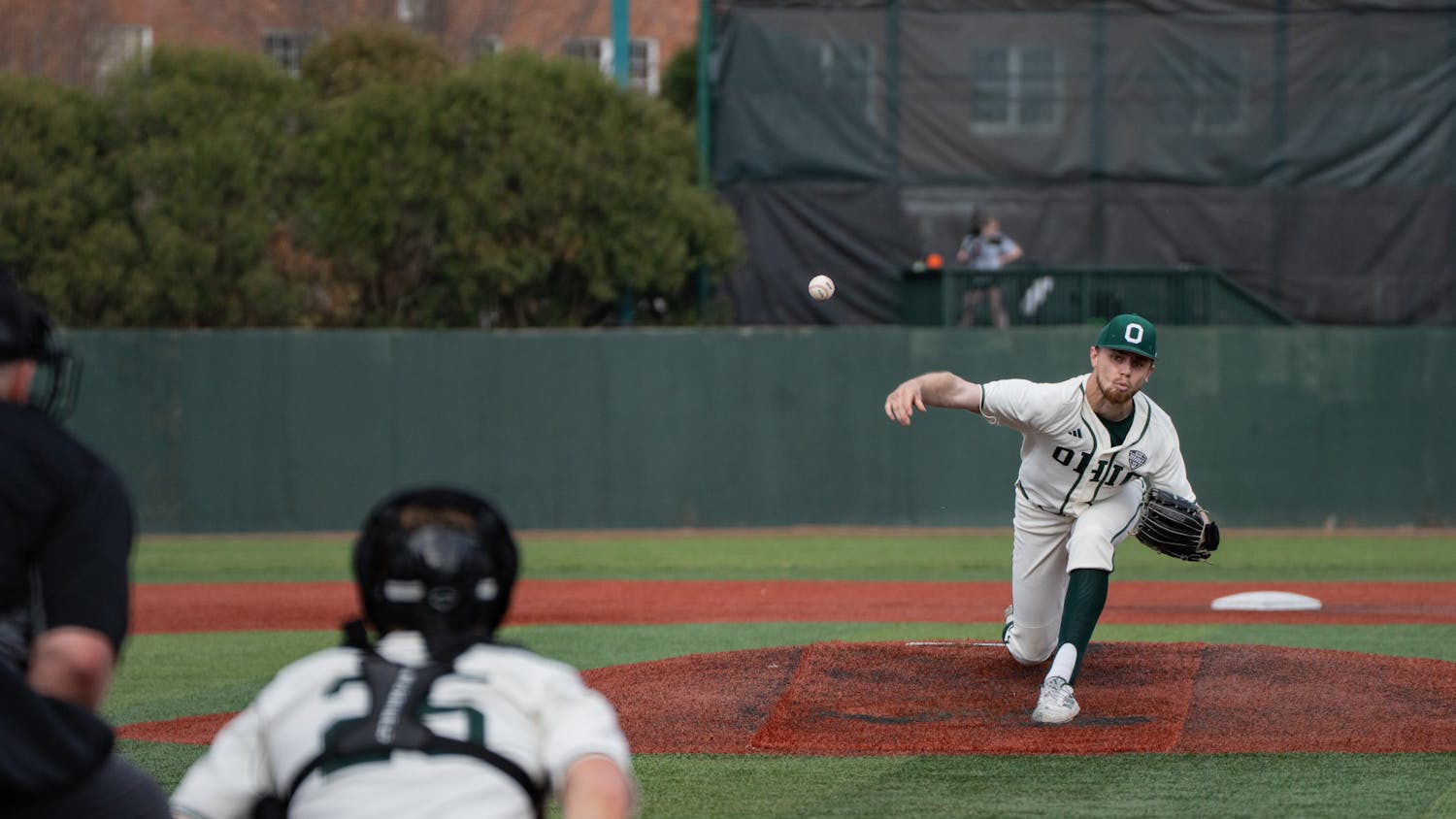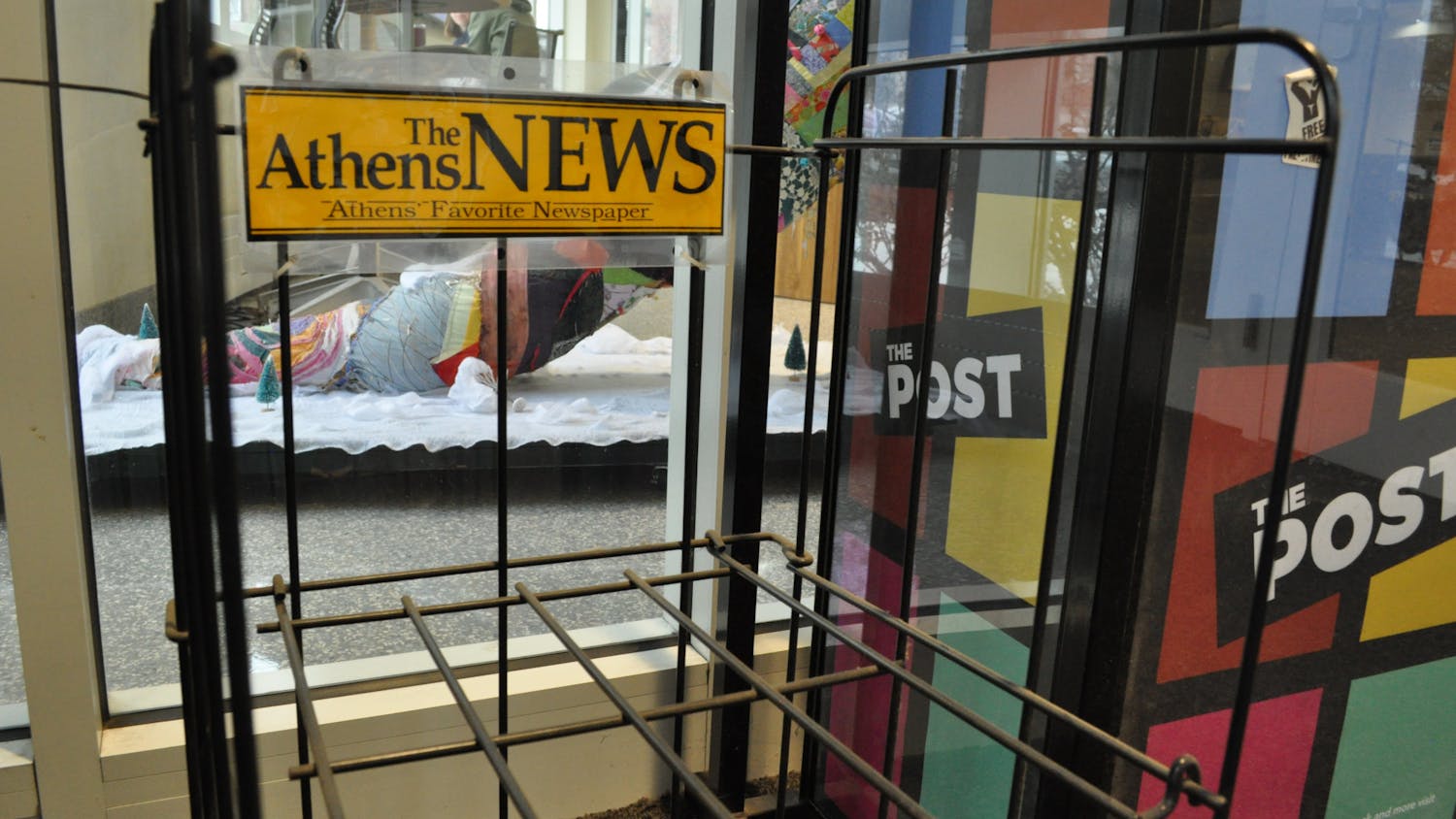Students whose parents or guardians did not complete a bachelor’s degree are considered to be first-generation Bobcats by Ohio University, and they still bleed the same green and white as students who have generations of Bobcats in their family.
According to the campus Academic Achievement Center, each year, OU’s first-year class is made up of around one-third of first-generation students. First-generation students may face unique challenges. A 2021 Pew Research Center analysis of data from the Federal Reserve Board found that around 70% of adults between 22 and 59 whose parents (or parent) have a bachelor’s degree or beyond also have a bachelor’s degree. Furthermore, only 26% of adults without a college-educated parent have a bachelor’s degree.
We Are The First, a drop-in support space, is held in Alden Library room 319 every other Tuesday from 4:00 p.m. to 5:00 p.m. for students to share their experiences as first-generation students. Although a lot of students have yet to use the support space, Sean Murphy, a doctoral student and health services psychology intern with Counseling and Psychological Services, is hoping more will stop by in the future.
“We piloted (the program) last year in the fall, and this year, we kind of rebranded it to be We Are The First and this would be our second meeting,” Murphy said. “So still really early on in the process, and this is actually a collaboration with the Academic Achievement Center and sort of their initiative to get first-gen students more support but also just a welcoming, supportive sense of belonging.”
Part of Murphy’s research is centered around first-generation students from rural Appalachia. He recognizes the specific obstacles that can come with figuring out different processes as a college student.
“Also, first-gen students have a lot of pride in being resilient, you know, being folks who are able to support themselves, and at the same time, it may make it more difficult to reach out for help,” said Murphy.
That third floor room in Alden next to the CoLab where people study when classes or other programs are not happening is now a meeting place for first-generation students who can bring their shared and different experiences.
“I think a lot of first-gen students, it does come with maybe some amount of stigma or worry about what people might think about them,” Murphy said. “Really getting around folks who maybe understand a little bit about that experience but they can also relate to: man, it really took a lot for me to get here. I have a lot of pride in this. I think that’s part of the reason why we felt it’s really important to have something available to students to access without having to make an appointment.”
Olivia Prevost, a junior studying public health pre-med, said her friend is a first-generation student and there are certain expectations they have to face.
“There’s a lot of pressure at home,” Prevost said. “Their parents want more for them than they had. That adds a whole different level (of pressure) than none of us really has.”
Similarly, Collette Trudeau, a sophomore studying biological sciences pre-med, said her close friend is a first-generation student and that she observed the difficulty of applying for college.
“She went through a lot of struggles trying to figure out the financial aid and how to pay for everything and how to fill out all the forms,” Trudeau said.
The definition of first-generation student is complicated, Murphy said, and depends on who is being asked. In Murphy’s research with high school students who would become first-generation college students, he used a different definition than the more common one, being that at least one parent does not have a bachelor’s degree.
“In the definition I used, neither parent has any experience with college,” said Murphy. “So coming from that, it is part of the research where there’s this reason that there’s this broad array. So, you might fall into that category, even though it’s like, hey, that doesn’t sort of resonate with my experience.”
We Are The First’s next meeting is Feb. 21 and offers first-generation students an opportunity to discuss both the major and minor parts of the college experience.
“I think that having a space like this where folks who are first-generation college students can come together and just sort of discuss what their experiences are like, discuss both the challenges, the opportunities, even things like hopes (and) dreams,” Murphy said. “It’s just like wanting to create a space where they don’t have to worry about even hiding that aspect about themselves.”






